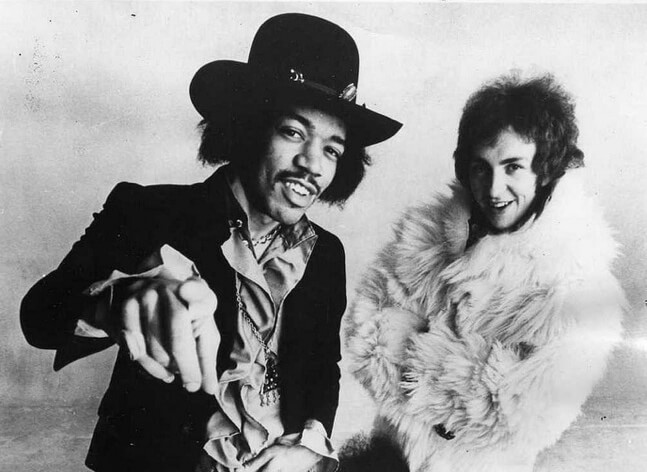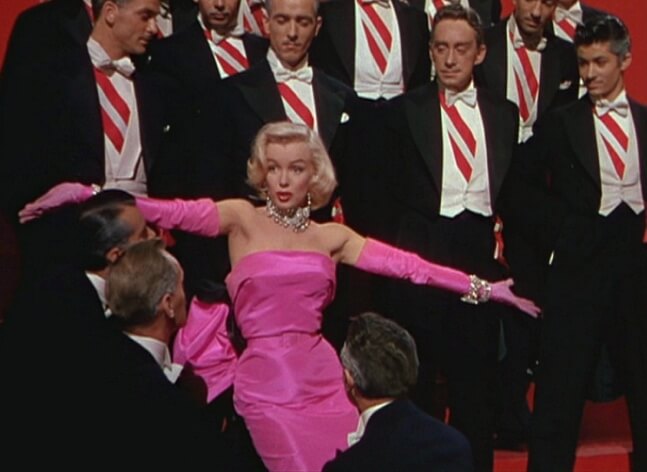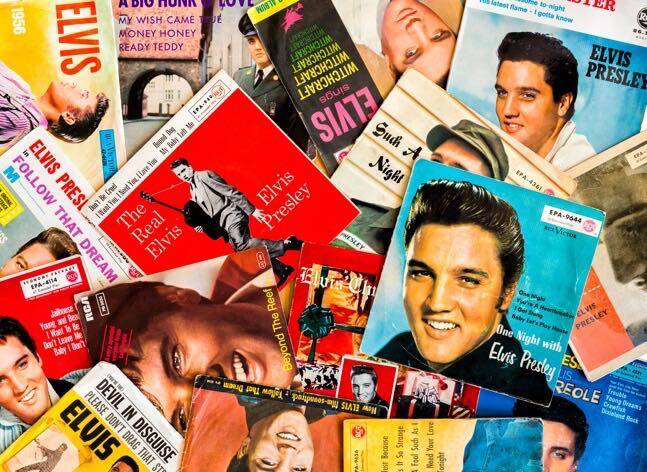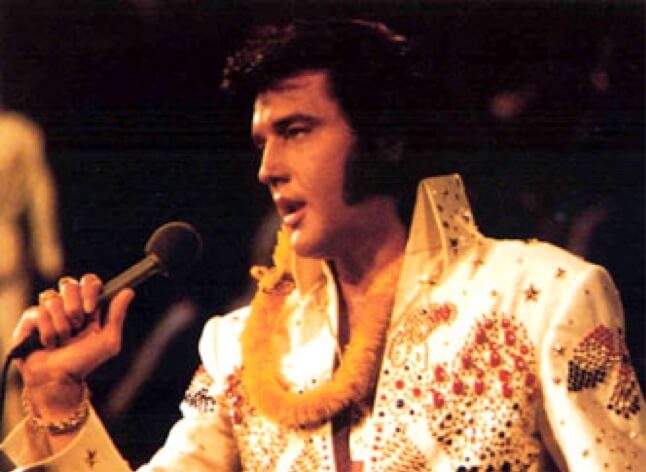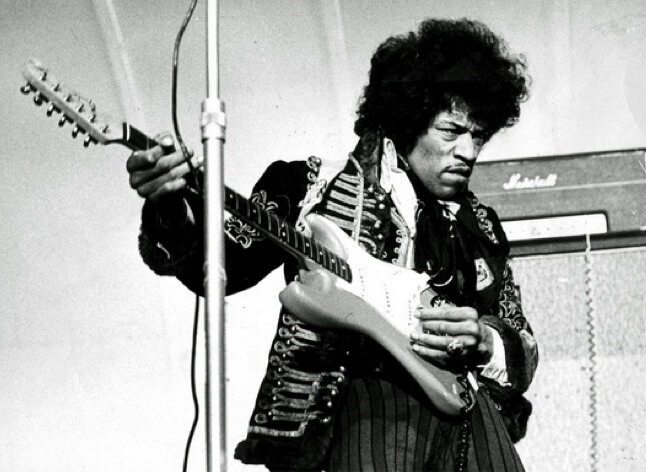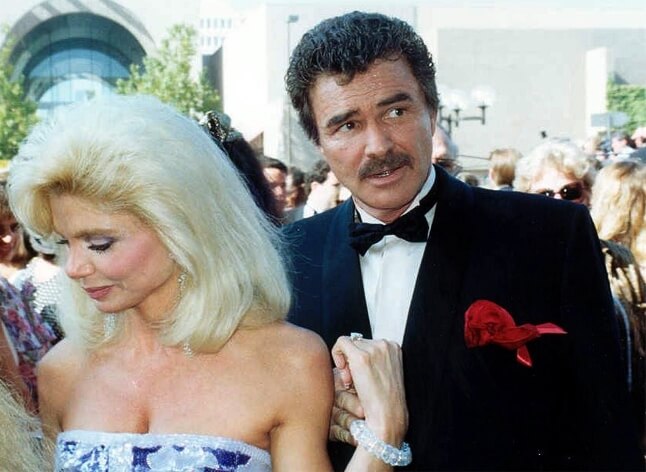No person is immune to addiction or its consequences. When celebrities abuse alcohol or other drugs, they’re at the same risk for developing substance use disorders as everyone else.
Their actions, and the consequences of their actions, are displayed in magazines, on TV and on the internet. When a celebrity checks into rehab or overdoses from a drug, the public knows. The constant reporting of celebrity drug use can make it seem like addiction is more common in Hollywood than in the rest of the world.
But celebrities have the same anatomies as everyone else. The percentage of celebrities who suffer from addiction is likely similar to that of the general public.
“I have the data to prove it,” said Dr. Drew Pinsky, former host of VH1’s “Celebrity Rehab with Dr. Drew” in a 2010 interview. “Every weeknight for decades we’ve had celebrities on Loveline and given them surveys about their family, fame, upbringing, drug use. And the addiction rates are exactly what you’d see in society at large.”
In fact, more people in the restaurant and hospitality industry suffer from addiction than in the arts and entertainment industry. You may never know if a co-worker is suffering from or has recovered from addiction. The details of celebrities’ lives, however, are exposed for the world to see.
Why Celebrities use drugs
If a celebrity develops an addiction, he or she needs treatment like everyone else. When they struggle to stop using drugs, fans and critics have difficulty understanding why it’s difficult for a person with fame and fortune to control their actions.
“We just don’t like, particularly in this country, the notion that conditions of our brain can affect our judgment, our thinking and our free will,” Pinsky said in a 2014 interview. “We want to blame people who have brain disorders — they should somehow be able to magically rise above it. It’s a profound misconception.”
- High Stress Environments
- Demanding Schedules
- Easy Access to Drugs
They’re under enormous pressure to perform at high levels. People have high expectations for them, and the media and public can be incredibly damning when they make small mistakes. The pressure can lead to intense anxiety or depression.
Some celebrities, like many regular people, turn to alcohol or other drugs to cope with the pressure. Self-medication is a common precursor to addiction. It temporarily relieves stress but makes the body desire substances the next time it experiences stress, sadness or unease.
It leads to a dangerous cycle described by psychotherapist John Tsilimparis as: “Stress + Relief = Repetition.”
Although celebrity status does not cause addiction, it isn’t conducive to recovery, either.
“Once addiction is there, the trappings of celebrity can cause addiction to blossom,” Pinsky said in 2010. “Famous addicts make all the money they need to feed their addiction. They have enablers who can get them the drugs and assistants who are making too much money off them and don’t want to step in. So the addiction grows.”
The longer a person suffers from addiction, the greater the chances are that he or she will suffer harmful consequences from the disease. The worst consequence, the epitome of hitting rock bottom, is an overdose.
Are you looking for help?
Our recovery programs are based on decades of research to deliver treatment that really works.
Get Help Now
Celebrity Drug Overdoses
Some of mankind’s greatest cultural icons have suffered the most serious outcome of drug abuse and addiction. Countless stars have died drug-related deaths, but determining the exact cause of death is difficult in some situations.
In many cases, autopsies reported the official cause of death as drowning, heart failure or other medical conditions. On those reports, drug use was listed as a contributing factor.
Prince
In the months leading up to Prince’s death, his friends and family were reportedly becoming increasingly concerned with Prince’s prescription drug use. On a flight home from an Atlanta concert, the Academy Award-winning singer overdosed on Percocet that he was taking for hip problems.
His flight made an emergency landing in Illinois, and medical personnel on the ground administered a shot of the opioid overdose reversal drug Narcan. The singer was rushed to the hospital, but he left against medical advice after three hours to return to his home in Minnesota.
During the following days, Prince’s associates were in contact with a California addiction specialist to get the singer into a rehab facility. But before they could get him into rehab, Prince was found dead from an apparent drug overdose inside his Paisley Park home near Minneapolis.
A toxicology report revealed that the singer had overdosed on fentanyl, an extremely potent opioid. A subsequent police investigation indicated that Prince might not have known what was in the medication he took. A number of prescription pills in his home were mislabeled, and the singer had been in possession of pill bottles that bore someone else’s name.
Heath Ledger
The Academy Award-nominated actor reportedly suffered from heroin addiction in the years leading up to his overdose.
Ledger’s former girlfriend and mother of his child, Michelle Williams, forced him to attend rehab in 2007, but on January 22, 2008, Ledger’s body was found by his masseuse in his apartment. The masseuse called Ledger’s close friend Mary-Kate Olsen, who sent security guards to check on him before calling 911.
An autopsy revealed the presence of six drugs in his body, including oxycodone, hydrocodone, diazepam, alprazolam and temazepam. The report ruled that he died from abuse of prescription medications. All of the drugs were taken below lethal doses, but the combination of the drugs was fatal, according to the medical examiner.
In a 2006 interview with film critic Cole Smithey about his role in the film Candy, Ledger had said: “I mean it’s obviously not just celebrities in rehab, it’s probably a similar statistic to people outside of the industry. But I do think that drugs and alcohol have been glorified and exoticized in such a way that it gets into the art world.”
Philip Seymour Hoffman
Williams wasn’t the only person who tried to help Ledger. His good friend and fellow actor Philip Seymour Hoffman, who mentored several people in recovery, had spent hours counseling Ledger. In a tragic turn of events, Hoffman died of an accidental overdose six years after Ledger.
On February 2, 2014, Hoffman’s body was found in his apartment with a syringe in his arm. The actor, who lived blocks away from Ledger in New York City, died from poly-drug intoxication. A coroner found heroin, cocaine, benzodiazepines and an amphetamine in his body.
After 23 years of sobriety and countless hours working with recovering addicts, Hoffman relapsed and returned to rehab in 2013. During his life, he was nominated for four Academy Awards and won an Oscar for best actor for his role in “Capote.”
Amy Winehouse
Famous for a song about refusing substance abuse treatment, singer Amy Winehouse died in 2011 after an alcohol overdose. The singer won five Grammys for her “Back to Black” album, led by the hit single “Rehab.”
Winehouse had a history of mental illness. In her 2014 book “Loving Amy: A Mother’s Story,” Winehouse’s mother wrote that her daughter was self-harming at age nine, shoplifting by ten, smoking at 12 and drinking liquor at age 15.
Despite rejecting initial intervention attempts, Winehouse attended rehab in the years before her death. However, she was never able to maintain sobriety or long-term recovery. After being congratulated for winning five Grammys, Winehouse reportedly told her friend: “Jules, this is so boring without drugs.”
Whitney Houston
Dubbed the most awarded female artist of all time by Guinness World Records, Whitney Houston had earned two Emmy’s, six Grammy’s and 30 Billboard Music Awards by 2010. However, she died tragically on the night before the 2012 Grammy Awards.
Houston’s body was discovered in the bathroom of the Beverly Hilton Hotel submerged in a bathtub. An autopsy reported that she died from drowning, atherosclerotic heart disease and cocaine use. Cocaine, marijuana, Xanax, Flexeril and Benadryl were found in her body, but the four latter drugs did not contribute to her death, according to the report.
Houston had revealed her history of drug use in interviews with Diane Sawyer in 2002 and Oprah Winfrey in 2009. She had attended outpatient rehab for alcohol and drug addiction in 2011.
Marilyn Monroe
Marilyn Monroe’s death has long been shrouded by limited information and conspiracy theories. The body of the actress and pop culture icon was found by her psychiatrist in her bed around 3:30 a.m. on August 5, 1962.
Around 5:15 p.m. the day before, she had called the psychiatrist and told him she could not sleep. The coroner reported that her death was from an overdose of sleeping pills, more specifically barbiturate intoxication.
The death was also ruled a probable suicide. Accidental death was ruled out because the amount of drugs in her system was much higher than the lethal dosage. Monroe had suffered from frantic mood changes and severe depression in the years leading up to her death, and there was no indication of foul play.
Elvis Presley
The King of Rock and Roll was in poor health, bedridden, weighing about 350 pounds and requiring nursing care near the end of his life. Several sources have debated and scrutinized the details and ruling of his death. The coroner wrote that he died of natural causes on his death certificate.
Thus, Presley officially died from hypertensive cardiovascular disease with atherosclerotic heart disease, also known as a heart attack. However, a toxicology report revealed that he had 10 prescription medications his body when he died, including codeine at 10 times the therapeutic level.
Presley’s body was found in the bathroom of his mansion at Graceland on August 16, 1977. An ambulance took him to Baptist Memorial Hospital in Memphis, Tennessee, where he was pronounced dead. During his life, he won three Grammy’s and the Grammy Lifetime Achievement Award. He is the best-selling solo artist of all-time.
Jimi Hendrix
Dubbed by the Rock and Roll Hall of Fame as one of the greatest instrumentalists in the history of rock, Hendrix had a well-known history of drug use. His exhaustion from regular drug abuse, pressures of stardom and fatigue from touring were noticeable in his last performances.
On September 18, 1970, Hendrix consumed nine sleeping pills prescribed to his girlfriend, Monika Dannemann’s Vesparax. Dannemann awoke the next day to find Hendrix unresponsive and barely breathing. She called an ambulance, but Hendrix was announced dead less than two hours later at St. Mary Abbott’s Hospital in London. The cause of death was ruled suffocation from inhaling vomit because of barbiturate intoxication.
Hendrix was one of the original members of the infamous 27 Club, coined after singers Brian Jones, Janis Joplin, Jim Morrison and Hendrix each died at the age of 27 between 1969 and 1971 from drug-related deaths.
Hendrix was nonchalant about his drug use in the years before his death. He once said: “I tell you, when I die I’m going to have a jam session. I want people to go wild and freak out. And knowing me, I’ll probably get busted at my own funeral.”
Ready to make a change?
Get help with your addiction today!
Get Help Now
Celebrities Who Survived Drug Overdoses
Drug overdoses aren’t always fatal. Sometimes they are blessings in disguise, a wake-up call for individuals suffering from addiction. Several stars have experienced drug overdoses, and many say the experience helped them get their lives back on track.
Burt Reynolds
The award-winning actor suffered from Halcion addiction during the 1980s after he was prescribed the drug following a jaw injury in 1984. He was taking as many as 50 pills a day before he tried to quit cold turkey.
The withdrawal from Halcion was so severe that he was transported to a Los Angeles hospital where doctors told his wife to say her final goodbyes as Reynolds struggled to maintain consciousness. However, he regained consciousness after about seven hours and eventually recovered.
Later in life, Reynolds succumbed to an addiction to prescription painkillers after taking the drugs following back surgery. He entered rehab in 2009.
Nikki Sixx
The songwriter and bassist for Mötley Crüe was known for partying and using drugs throughout the band’s height of success in the ‘80s and ‘90s.
“I threw myself headlong into music and that lifestyle,” Sixx said in a 2014 interview. “I never really figured I’d get out of the other side. A few years later, when I got sober and was able to become a father and have a family, that was when some of the greatest lessons came.”
Sixx overdosed on heroin in 1987 after a party. He was reportedly declared dead, and his heart had stopped for two minutes before paramedics revived him with two shots of adrenaline. The experience led members of the band to agree to stop using heroin, according to Sixx’s memoir “The Heroin Diaries: A Year in the Life of a Shattered Rock Star.”
Sixx is sober today, and in 2014 he said, “I love it. I have a zest for life and I love the idea that I go home to my family and my wife and they understand me… I had a time, and what a time it was, but this surpasses it a thousand fold. I love stability, because what swirls around me is insanity.”
Pink
The three-time Grammy award-winning singer overdosed on Thanksgiving Day in 1995 after using ecstasy, crystal meth and acid for years. The experience changed her life, and she claims she never used drugs again afterward.
“It wasn’t to the point of going to the hospital, but I remember getting up off the floor in the morning — and that was the last time I ever touched a drug again,” Pink said in a 2012 interview.
The actress played a recovering sex addict in the indie film “Thanks for Sharing.” She said she took the role because she understood addiction and she believed it would help someone.
Eminem
Eminem has told his life story to the public through the lyrics of his songs, and he’s never been shy about sharing the dirty details of the struggles he’s faced.
“It’s no secret I had a drug problem,” he said in a 2009 interview. “If I was to give you a number of Vicodin I would actually take in a day? Anywhere between 10 to 20. Valium, Ambien, the numbers got so high I don’t even know what I was taking.”
After a doctor refused to prescribe him painkillers following a knee surgery, Eminem went home to find Vicodin that he’d hidden from himself years before. In 2007 he overdosed.
“They said if I would’ve gotten to the hospital two hours later, that would have been it,” Eminem said in 2010. “Because my organs, my kidneys were failing, everything was shutting down.”
The artist released albums titled “Relapse” and “Recovery” in 2009 and 2010, respectively. The latter was aimed at helping others struggling with life’s difficulties. “I do feel like if I can help people who have been through a similar situation, then why not,” he said in 2010.
Addiction has affected some of the greatest entertainers of all time. It’s taken the lives of cultural icons and devastated fans across the world. However, some have overcome addiction and inspired others by proving that recovery is possible.
Medical Disclaimer: DrugRehab.com aims to improve the quality of life for people struggling with a substance use or mental health disorder with fact-based content about the nature of behavioral health conditions, treatment options and their related outcomes. We publish material that is researched, cited, edited and reviewed by licensed medical professionals. The information we provide is not intended to be a substitute for professional medical advice, diagnosis or treatment. It should not be used in place of the advice of your physician or other qualified healthcare provider.
Author
Senior Content Writer,
DrugRehab.com
Chris Elkins worked as a journalist for three years and was published by multiple newspapers and online publications. Since 2015, he’s written about health-related topics, interviewed addiction experts and authored stories of recovery. Chris has a master’s degree in strategic communication and a graduate certificate in health communication.
View Sources
- Barron, J. (2008, February 7). Medical Examiner Rules Ledger’s Death Accidental. Retrieved from http://www.nytimes.com/2008/02/07/nyregion/07ledger.html?_r=0
- Bychawski, A. (2012, October 22). Pink reveals ecstasy, crystal meth and acid overdose scare. Retrieved from http://www.nme.com/news/pink/66769
- Calkin, J. (n.d.). Amy Winehouse: behind the controversial documentary. Retrieved from http://s.telegraph.co.uk/graphics/projects/amy-winehouse/index.html
- Childs, D. (2007, March 26). Anna Nicole Smith’s Overdose – a Prescription for death. Retrieved from http://abcnews.go.com/Health/story?id=2982443&page=1
- Collins, D. (2002, August 7). How Big Was The King? Retrieved from http://www.cbsnews.com/news/how-big-was-the-king/
- Curry, C. (2014, February 4). Celebrities and Heroin Addiction: How It Happens. Retrieved from http://abcnews.go.com/Entertainment/heroin-hollywood-long-tradition-affecting-small-number-stars/story?id=22360180
- Daily Mail.com. (2014, February 3). How Philip Seymour Hoffman tried to help tragic Heath Ledger quit drugs before his friend's fatal 2008 overdose in NYC apartment blocks from Hoffman's death pad. Retrieved from http://www.dailymail.co.uk/tvshowbiz/article-2550995/How-Philip-Seymour-Hoffman-tried-help-tragic-Heath-Ledger-quit-drugs-friends-fatal-2008-overdose-NYC-apartment-blocks-Hoffmans-death-pad.html
- Fisher, L. & Marikar, S. (2011, May 9). Whitney Houston Returns to Rehab. Retrieved from http://abcnews.go.com/Entertainment/whitney-houston-returns-rehab/story?id=13563047
- Gritt, E. (2016, January 7). 'Amy died with missing teeth and Tourette's' ... mum Janis makes new claims. Retrieved from http://www.thesun.co.uk/sol/homepage/showbiz/6844981/Amy-Winehouse-died-with-missing-teeth-and-bones-sticking-through-her-knees-and-might-have-had-Tourette-Syndrome.html
- Healy, M. (n.d.). Eminem: The Home Body. Retrieved from http://www.mensjournal.com/magazine/eminem-the-home-body-20150731
- Hertel, H. & Neff, D. (1962, August 6). From the Archives: Marilyn Monroe Dies; Pills Blamed. Retrieved from http://www.latimes.com/local/obituaries/archives/la-me-marilyn-monroe-19620806-story.html
- Hudson, A. & Coxall, S. (2015, March 4). The nine musicians who have all been declared dead but still play music today. Retrieved from http://www.mirror.co.uk/usvsth3m/nine-musicians-who-been-declared-5272037
- Jaslow, R. (2013, July 26). Whitney Houston’s autopsy: How can drowning, cocaine and heart disease all be blamed? Retrieved from http://www.cbsnews.com/news/whitney-houstons-autopsy-how-can-drowning-cocaine-and-heart-disease-all-be-blamed/
- Karger, D. (2012, August 24). Fifty shades of Pink. Retrieved from http://www.ew.com/article/2012/08/24/fifty-shades-pink/3
- Kors, J. (2010, December 1). As Celebrity Rehab 4 Begins, Dr. Drew Speaks Out About Dating, Addiction, Fame and Adam Carolla. Retrieved from http://www.huffingtonpost.com/joshua-kors/as-celebrity-rehab-4-begi_b_790051.html
- Leonard, T. (2008, January 29). Heath Ledger ‘refused help for heroin abuse.’ Retrieved from http://www.telegraph.co.uk/news/worldnews/1577062/Heath-Ledger-refused-help-for-heroin-abuse.html
- MacInnes, P. (2008, January 24). Amy Winehouse goes to rehab. Retrieved from http://www.theguardian.com/music/2008/jan/24/amywinehouse
- Marikar, S. (2012, April 4). Whitney Houston: ‘White Powder’ Found on Spoon in Hotel Room. Retrieved from http://abcnews.go.com/Entertainment/whitney-houston-found-facedown-bathtub-bloody-nose/story?id=16074854
- McLellan, D. (2011, March 4). John Miner dies at 92; investigator of Marilyn Monroe’s death. Retrieved from http://articles.latimes.com/2011/mar/04/local/la-me-john-miner-20110304
- Maule, H. (1970, September 19). Jimi Hendrix dies of overdose in 1970. Retrieved from http://www.nydailynews.com/entertainment/hendrix-dies-overdose-1970-article-1.2353533
- Orlando Sentinel. (1992, April 19). Burt Reynolds: Sleep-pill Addiction Nearly Killed Me. Retrieved from http://articles.orlandosentinel.com/1992-04-19/news/9204190406_1_burt-reynolds-addiction-sleep
- Reid, S. (2009, May 4). Eminem Admits He ‘Almost Died’ From Drug Overdose. Retrieved from http://www.mtv.com/news/1610557/eminem-admits-he-almost-died-from-drug-overdose/
- Rock and Roll Hall of Fame. (n.d.). The Jimi Hendrix Experience Biography. Retrieved from http://rockhall.com/inductees/the-jimi-hendrix-experience/bio/
- Rodgers, G. (2016, February 4). Elvis Presley’s Death — What Really Killed the King? Retrieved from http://www.huffingtonpost.com/garry-rodgers/elvis-presleys-death-what_1_b_9157820.html
- Sanchez, R. (2014, February 28). Coroner: Phillip Seymour Hoffman died of acute mixed drug intoxication. Retrieved from http://www.cnn.com/2014/02/28/showbiz/philip-seymour-hoffman-autopsy/
- Simpson, D. (2014, October 24). Mötley Crüe’s Nikki Sixx: ‘I had a hangover for pretty much 15 years.’ Retrieved from http://www.theguardian.com/culture/2014/oct/24/30-minutes-with-nikki-sixx-motley-crue-sixx-am
- Smithey, C. (2006, November 29). Heath Ledger on “Candy.” Retrieved from http://filmcritic1963.typepad.com/interviews/2006/11/heath_ledger_on.html
- The Guardian. (2013, December 7). Jimi Hendrix, in his own words: ‘I dig Strauss and Wagner — those cats are good.’ Retrieved from http://www.theguardian.com/music/2013/dec/08/jimi-hendrix-in-his-own-words
- The Telegraph. (2009, September 17). Burt Reynolds treated for addiction to painkillers. Retrieved from http://www.telegraph.co.uk/news/celebritynews/6200266/Burt-Reynolds-treated-for-addiction-to-painkillers.html
- Tsilimparis, J. (2013, July 24). Celebrities and Drug Addiction: A Perfect Storm. Retrieved from http://www.huffingtonpost.com/john-tsilimparis/celebrities-addiction_b_3640440.html
- Tyson. (2014, September 17). Dr. Drew Talks About Addiction, Childhood Trauma and Why He Believes in Twelve Steps. Retrieved from http://drdrew.com/2014/dr-drew-talks-about-addiction-childhood-trauma-and-why-he-believes-in-twelve-steps/
- Watt, N. & Effron, L. (2012, June 26). Amy Winehouse’s Father Opens Up About Singer’s Drug, Alcohol Abuse. Retrieved from http://abcnews.go.com/Entertainment/amy-winehouses-father-blames-singers-decline/story?id=16631194
- Chanen, D. (2016, June 2). Prince died from accidental overdose of fentanyl, medical examiner says. Retrieved from Retrieved from http://www.startribune.com/prince-died-from-opioid-overdose/381663221/
- Contrera, J. (2016, August 22). Prince might have been a casualty of a counterfeit pill problem sweeping the nation. Retrieved from Retrieved from https://www.washingtonpost.com/news/arts-and-entertainment/wp/2016/08/22/prince-might-have-been-the-victim-of-a-counterfeit-pill-problem-sweeping-the-nation/
 Addiction
Addiction
 Treatment
Treatment
 Faith & Religion
Faith & Religion
 Active Recovery
Active Recovery
 Our Community
Our Community


